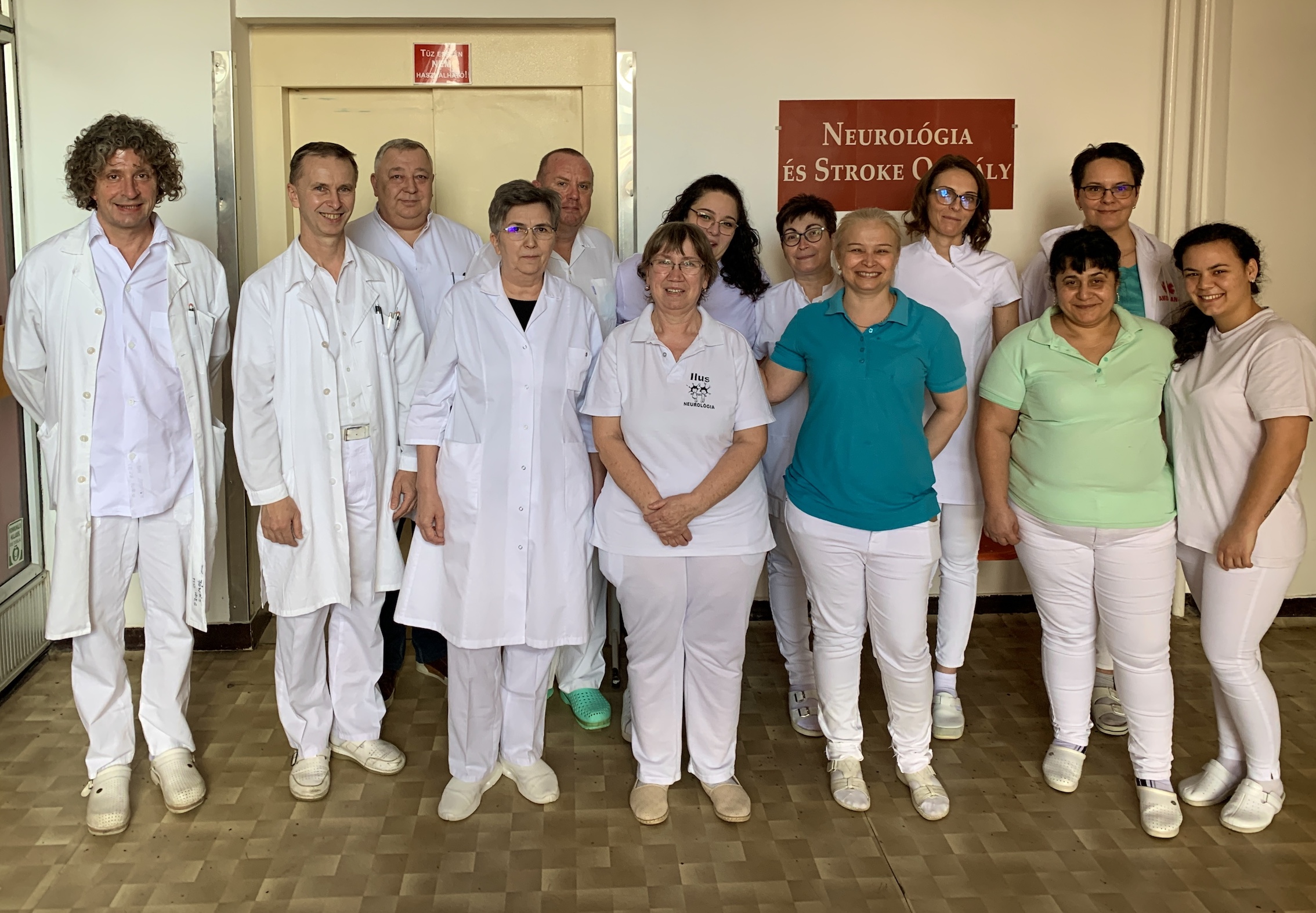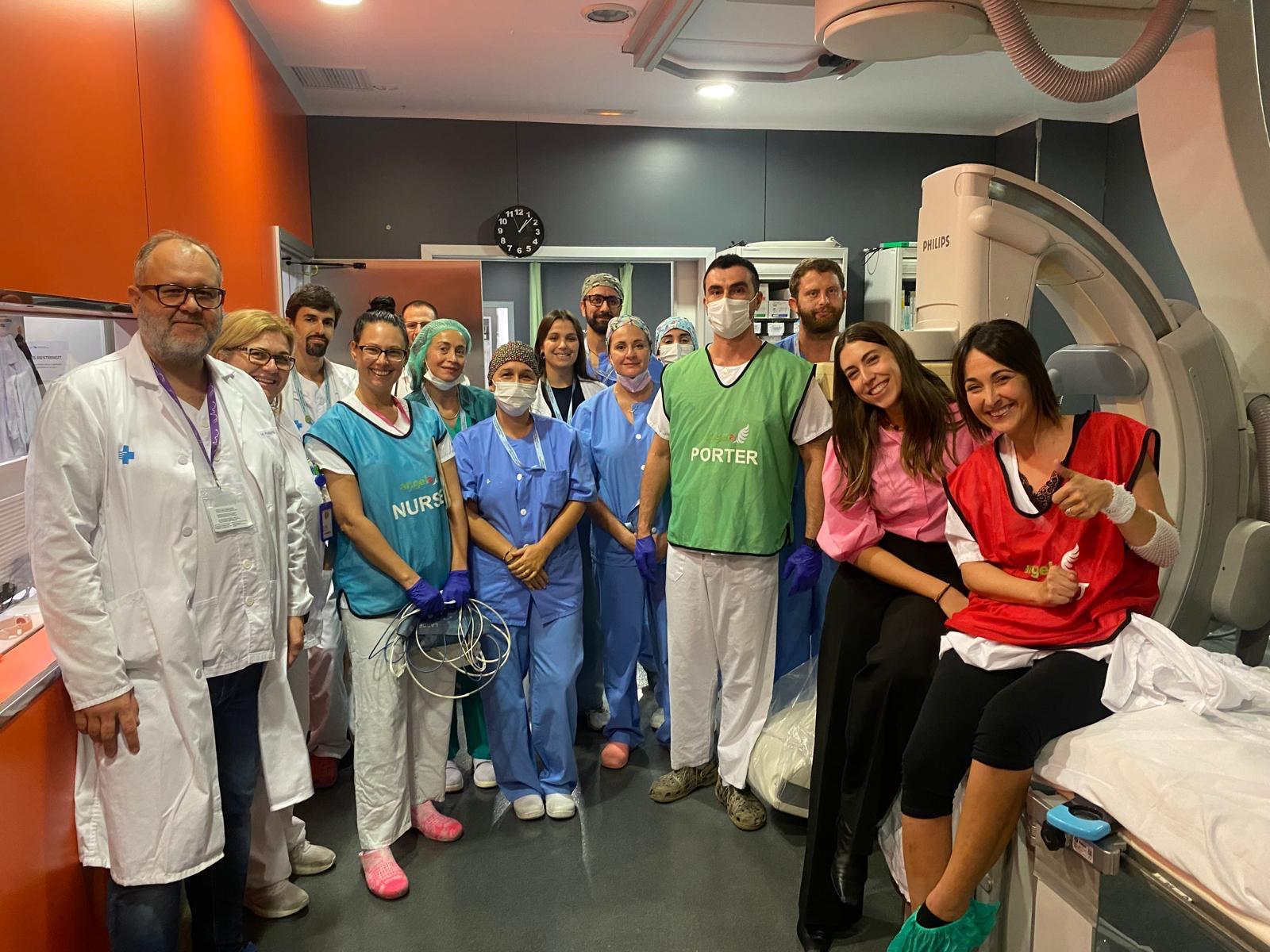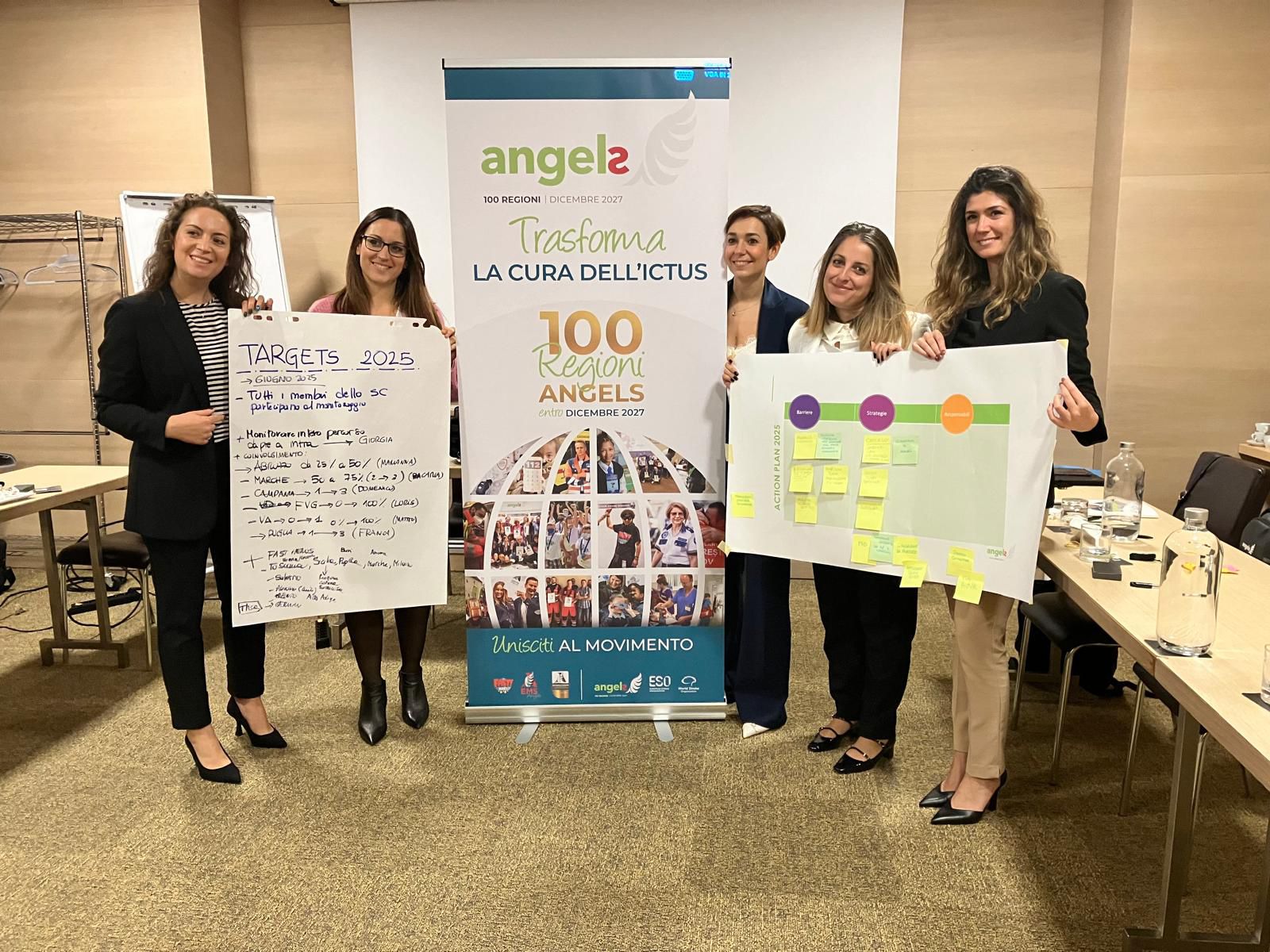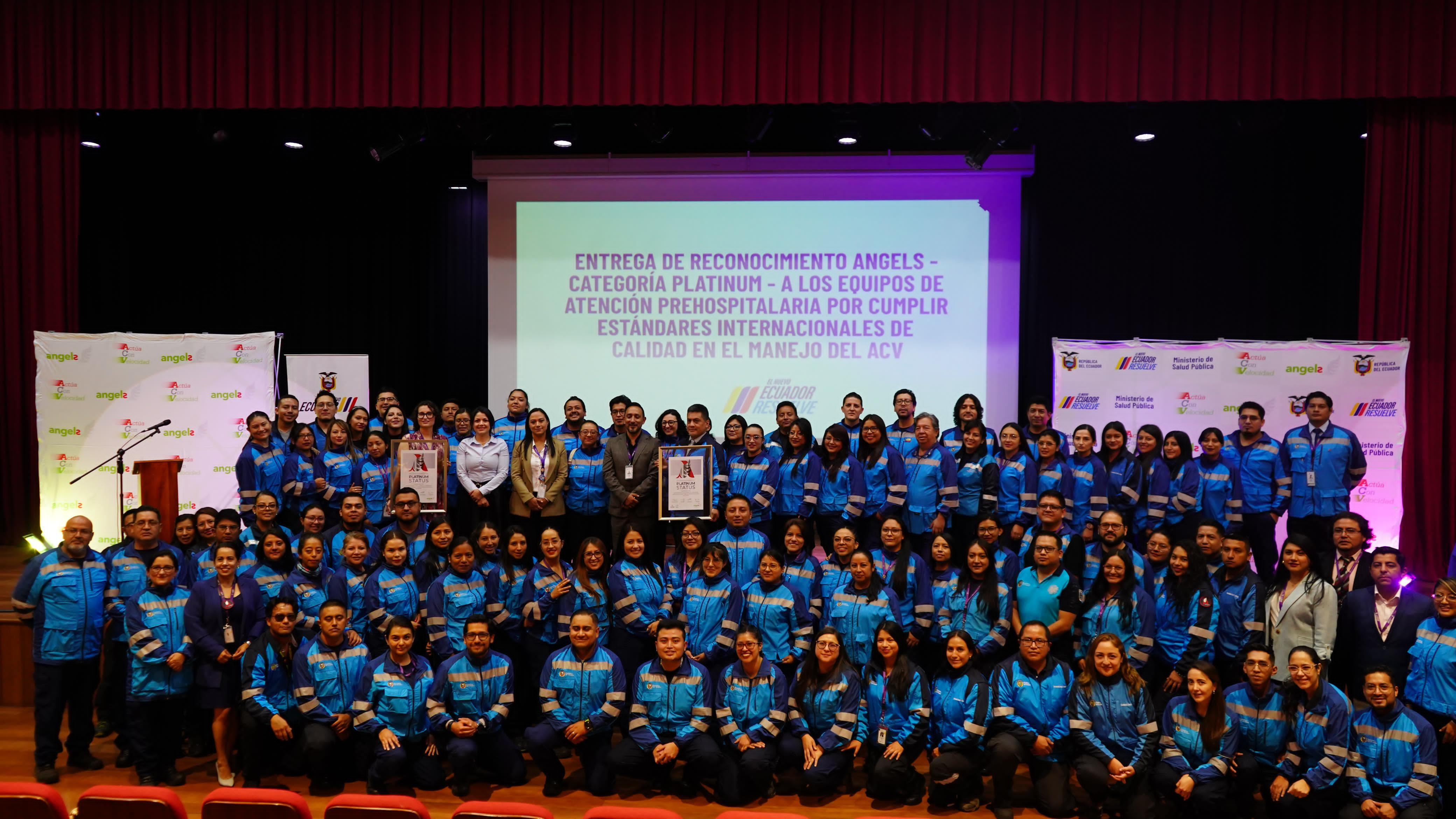
Mátészalka is the second-largest town in Hungary’s north-eastern Szabolcs-Szatmár-Bereg County and yet small enough to get around on foot. It is located 52 kilometres east of the county capital Nyiregyhaza, and less than an hour’s drive from the borders with Slovakia, Ukraine and Romania.
This far away from cosmopolitan Budapest, the rare visitor may be surprised to find the Tony Curtis Café at number 16 Kossuth Street. It forms part of a community art centre recently established by the American actress Jamie Lee Curtis in what was once her grandparents’ hometown synagogue, to honour her famous father’s Hungarian roots.
A few blocks away, on Kórház Street, is the real reason we have brought you here – to the entrance of Mátészalka Hospital, where the chief neurologist, Dr Judit Incze, leads an intrepid stroke team that has just earned its second gold Angels Award.
Mátészalka Hospital belongs to a healthcare network known since 2013 as the Szabolcs-Szatmár-Bereg County Hospitals and University Teaching Hospital, but with origins dating back to 1932, it has witnessed a great deal of turbulent history. These days it serves a population of around 150,000 people who live in the town and surrounding villages.
Stroke treatment started at this hospital in 2013 thanks to the efforts of Dr Incze’s predecessor who would after a few years welcome Angels support for stroke pathway optimisation. The only stroke centre for miles around, it now admits upwards of 400 acute stroke patients per year, of whom around 10% are treated with thrombolysis.
A commitment to data-driven improvement
Stroke data collection got off the ground slowly in Hungary. In 2017, the Neurological Clinic in the Faculty of Medicine at Semmelweis University became the first to register its data in RES-Q and the first hospital in Hungary to collect an Angels Award. The number of hospitals in RES-Q grew to 13 in 2020, but to date only 40% of hospitals in the country participate in the annual stroke data collection project.
That Mátészalka Hospital is among the handful of hospitals that have become eligible for the Angels Awards programme through a commitment to quality monitoring, is testimony to Dr Incze’s belief in data-driven improvement and her efforts to instil a quality mindset in her team. It is she who extracts the data from patient files, registers patients in RES-Q, studies the feedback in order to identify gaps, and leads regular meetings about opportunities for improvement that emerge from the data.
Their second gold is evidence that the stroke team at Mátészalka Hospital is already doing many things right. Thanks to EMS prenotification – a key priority action – the neurologist and their team wait for the patient to arrive, rather than the other way around. They accompany the patient to the CT room, and prevent treatment delays by relying on point-of-care testing for decision-making whenever possible.
Although low awareness of stroke among the local population means a significant number of patients inevitably arrive outside the treatment window, Dr Incze is resolute that “all patients arrive as thrombolysis candidates, until decided otherwise”. This means that the stroke team at Mátészalka Hospital is committed to finding reasons to treat the patient, rather than looking for reasons not to.
Surviving the pandemic
With the third-highest Covid death rate in Europe, the pandemic hit Hungary hard and placed hospitals under unimaginable pressure. Stroke care was affected here as it was across Europe due to staff being deployed to Covid wards and beds reduced, CT facilities becoming overwhelmed, and patients staying away out of fear.
At Mátészalka Hospital the unprecedented strain meant the stroke team barely had time to celebrate their first Angels Award or reflect on the fact that they had earned this distinction during a global health crisis. “Our only strategy was to hope it would end at some point – it is much harder when you cannot see the end of a crisis,” Dr Incze recalls.
The award did raise spirits and winning a second has now provided even more validation amid concerns that staff shortfalls could endanger the future of stroke care at this hospital.
“We were really glad. People felt that they were recognised for doing such hard work effectively,” Dr Incze says. However, she remains worried that the personnel shortage could mean that stroke patients may in future have to be transferred to Nyiregyhaz more than 50 kilometers away.
She says, “My only hope is that the stroke centre will endure in Mátészalka. Because towns are so remote from each other, it is absolutely necessary.”




